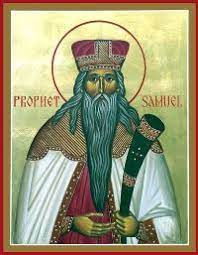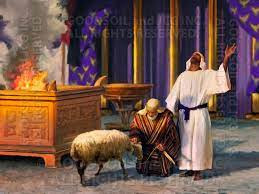Here are the links to the first four blogposts in this Quaker series:
1 - https://robdonovan.blogspot.com/2022/08/the-world-seen-through-eyes-of-new.html
2 - https://robdonovan.blogspot.com/2022/08/the-world-seen-through-eyes-of-new_15.html
3 - https://robdonovan.blogspot.com/2022/08/the-world-seen-through-eyes-of-new_22.html
4 - https://robdonovan.blogspot.com/2022/08/the-world-seen-through-eyes-of-new_29.html
If you have made this journey with me so far, you might be forgiven for thinking that I am portraying the time of the hunter-gatherers as a paradise on earth. That is not my intention. As Rutger Bregman observes, at the beginning of his chapter, 'The Curse of Civilisation':
'Human beings have never been angels. Envy, rage and hatred are age-old emotions that have always taken a toll.'
 |
| Rutger Bregman - Dutch historian and writer - the author of 'Humankind' in which he provides an update on recent scientific findings in a number of fields, including biology and anthropology |
Yet in Bregman's words, '... our ancestors were allergic to inequality. Decisions were group affairs requiring long deliberation in which everybody got to have their say'. He cites the American anthropologist, Christopher Boehm, who has concluded on the basis of 339 fieldwork studies of nomadic foragers that they are universally concerned with being free from the authority of others. Power distinctions between people were only tolerated temporarily and for specific purposes. The Canadian anthropologist, Richard Lee, worked with the !Kung in the Kalahari Desert and quotes these words of a tribesman:
'We refuse one who boasts, for someday his pride will make him kill somebody. So we always speak of his meat as worthless. This way we cool his heart and make him gentle.'
 |
| !Kung tribes people in the Kalahari Desert - a Wikipedia image |
Hunter-gatherers do not hoard goods. Christopher Columbus, in the late 15th century, wrote in his log:
'When you ask for something they have, they never say no. To the contrary, they offer to share with anyone.'
Unfortunately, what Columbus brought in return was disease, exploitation and death.
So why did the stability inherent in the life of the hunter-gatherers come to an end? Bregman says that the science indicates at least two causes:
- After the end of the last Ice Age, as the climate changed, an area between the Nile in the west and the Tigris in the east was turned into a land of milk and honey. Food was now in plentiful supply; there was no longer a need to forage; huts and villages were built first, then towns and temples as the population grew. Possessions got passed on from one generation to the next. Inequality grew. There were now belongings to fight over, not the least of which was land.
- Settled life made the farmers more distrustful of strangers - and more focused on their own possessions. Clans began forming alliances to defend against other clans. War produced charismatic leaders who proved their mettle on the battlefield. Such leaders became kings in peacetime and further consolidated their power.
Bregman uses the words of the Old Testament prophet, Samuel, to illustrate the inequalities that follow from the arrival of hierarchies:
'These will be the ways of the king who will reign over you: he will take your sons and appoint them to his chariots and to be his horsemen and to run before his chariots. ... He will take your daughters to be perfumers and cooks and bakers. He will take the best of your fields and vineyards and olive orchards and give them to his servants. He will take the tenth of your grain and of your vineyards and give it to his officers and to his servants. He will take your male servants and female servants and the best of your young men and your donkeys, and put them to his work. He will take the tenth of your flocks, and you shall be his slaves.'
 |
| The prophet Samuel - Greek icon - a Wikipedia image |
The arrival of settlements and the establishment of private property spelled the end of liberty, equality and fraternity. The 1 per cent began oppressing the 99 per cent. Infectious diseases - 'crowd diseases' - appeared for the first time. The bacterial crew such as typhoid, cholera, and tuberculosis have had their heydays; flu and other viruses come from the interactions between humans, farm animals and bird-life - and we know their power.
Once we were settled, we became much more vulnerable to singular events such as famine, flood and epidemic. A single failed harvest or deadly virus was enough to wipe out much of a population.
In addition, the emergence of the first large settlements triggered, in Bregman's words: 'a seismic shift in religious life ... For the first time in history, we developed a notion of sin. And we began looking to priests to prescribe how we should do penance ... Sometimes it was enough to pray or complete a set of rituals, but often we had to sacrifice cherished possessions - food or animals or even people.'
 |
| A sacrifice of a lamb in the Temple in penance for sin - following the ways of the priest and holy scripture |
I will leave you to begin teasing out how the historical life of Jesus, and the theology of sacrifice and redemption from sin through the death of the Saviour, fits into this big picture provided by the biologists and anthropologists.
Meanwhile, returning to more recent times in the history of civilization, Bregman makes a number of profoundly important points:
- It's true that for 95 per cent of human history, war and disease were virtually unknown when humans were hunter-gatherers.
- And it's also true that for nearly all the remaining 5 per cent of human history, life for most people was indeed 'nasty, brutish and short'. Until 1800, at least three-quarters of the global population lived in bondage to a wealthy lord. More than 90 per cent of the population worked the land, and more than 80 per cent lived in dire poverty.
- But there has been genuine progress in very recent times for the majority of people in the developed world and increasing numbers in the rest of the world. Industrialization has been responsible for bringing the possibility of peace and progress for many. Vaccinations save many lives; we are richer than ever before; extreme poverty has dropped to under 10 per cent; slavery has been formally abolished (although still existing); fewer people than ever before die in war.
And yet. As a direct consequence of the industrialization that has brought so many benefits to so many, we are now facing global extinction. The planet is warming, species are dying out and the truth is that the old models of growth are no longer sustainable although nearly all politicians still cling to them even as those models splinter before our very eyes. We face an existential crisis. The wheels loosen and the crash looms.
 |
| Clinging on .... |
I am reminded at this point of a very important article - Transformative Adaptation with Rupert Read at Glenthorne - in the most recent edition of the Quaker publication, 'The Cornish Friend' (May 2022). Jackie Carpenter edited that copy and also wrote the article, having attended Rupert's course at the Glenthorne Quaker Centre. Rupert Read has had a noteworthy career as an academic philosopher at UEA. He was also known and respected as an advocate for the Green Party.
The message that I picked up from Jackie's report is that the climate warming has now reached such a degree that in one sense we can no longer put our faith in moving from industrial growth to a more-sustainable non-growth model of community life. We are no longer in control. We are at the mercy of forces that we do not understand. We face what the course at Glenthorne termed a Great Sorrow which requires a Great Humbling - and then, if this is accepted and engaged with, there can still be a Great Turning in which we become the agents of change. 'We are all in this together. We MUST get out of our individualistic silos, then we shall find we are grounded in a unified field of love. We need to release this incredible energy of our love into the world, and move towards Transformative Adaptation.'
I am sure you can pick out the two key ideas here. This climate emergency is going to be worse than we may have feared. But we can still make good things happen by adapting as a community, with love, to what emerges.
I think that judgement is about right. I am neither an optimist nor a pessimist. I am, like Rutger Bregman, a possibilist.
Next week, in the final part of this series, I focus on the action - the cleansing of the Temple in Jerusalem - that directly led to the crucifixion of Jesus. What are the consequences of our actions - and inactions?
No comments:
Post a Comment